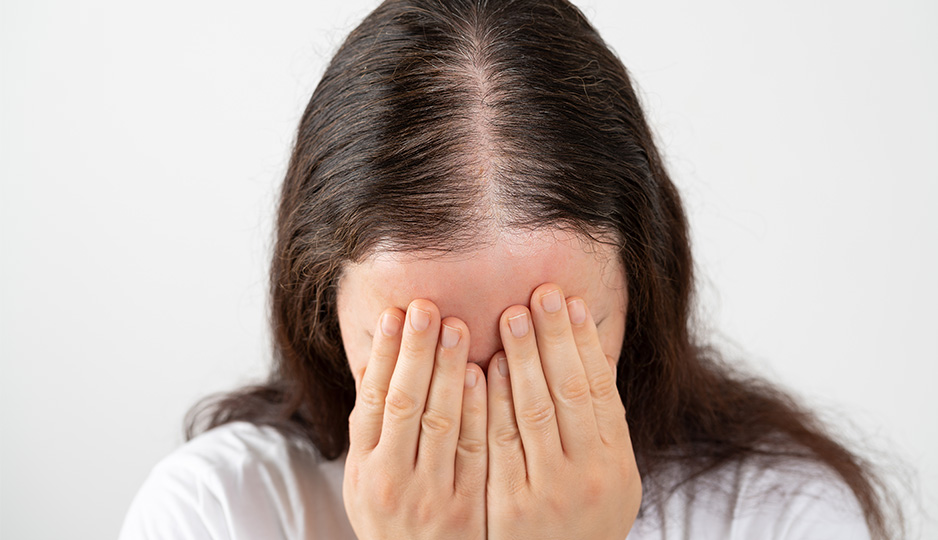Trichotillomania is an Obsessive Compulsive Disorder commonly known as the hair pulling disorder. Individuals diagnosed with this condition have an irresistible and recurrent urge to pull their hair. The continued pulling can be mild and go unnoticed or as in many cases result in large patches of either broken hair or bald spots that can be very difficult to hide.
Why People Develop Trichotillomania
While trichotillomania is a medically acknowledged disorder, very little is known about it. Since knowing why people develop trichotillomania plays a significant role in treating the condition, time and resources have been dedicated to discerning the exact biological cause, which remains a mystery. What we do know is that it's a neurological issue and many medical experts believe there's both a psychological and genetic connection. There are multiple, based on sound medical research, hypothesis's about why some people develop severe trichotillomania.
The hypotheses include:
- Extreme stress, which is believed to be connected to a traumatic event
- A sensory event, such as rash or infection triggering trichotillomania creating a habit that the individual is unable to break
- That is an off-shoot of Obsessive-Compulsive Disorder which can be triggered by extreme stress and a chemical imbalance
- It could be a form of self-harm where the brief flash of pain distracts the individual from emotional problems.
Normally, trichotillomania develops at a fairly young age, typically as girls enter adolescence, but there are also many cases of women developing the condition as they go through menopause. It's unclear if the women who develop trichotillomania later in life do so as the result of a hormonal imbalance or because of stress.
There are two different types of trichotillomania.
Focused trichotillomania is most likely connected to extreme stress or OCD. Someone with focused trichotillomania will systematically pull their hair in what appears to be a desperate attempt to cope with stress/strong emotions/tension.
Automatic trichotillomania is more likely related to a sensory event since the individual doesn't realize that they've started pulling their hair. This type of trichotillomania is typically experienced in relaxed situations, often when the individuals are engaged in a low-key activity such as studying, stopped in traffic, or watching television.
Social Implications of Trichotillomania
While trichotillomania is considered a neurological condition, it has some social implications that drastically lower the quality of life. People who develop trichotillomania find that they have a difficult time hiding the evidence of their condition. Unable to find a way to hide the bald patches, they frequently lock themselves in their homes, cutting themselves off from their social circle. It's not unheard of for people who suffer from trichotillomania to struggle with employment since they're worried that their condition will negatively impact their ability to be hired and advance up the ladder. This triggers a snowball effect since the increasing sense of isolation and worry about finances creates the type of stress that makes trichotillomania worse.
How LH Hair can Help
While great strides have been made in helping people who suffer from trichotillomania discover why they're pulling out their hair, at this point, there's no actual cure, though addressing the underlying issues that likely trigger the condition is a good start. There are several solutions that can help you if you are experiencing hair loss from trichotillomania, including:
Technically there aren't any medications that help with the treatment of trichotillomania, but some people have noticed a reduction in their hair pulling after they started taking medications designed to treat depression.
Contacting LH Hair will help you deal with your hair loss that's caused by trichotillomania. When you contact us, we'll help you set up a free consultation with one of our hair loss experts who will discuss the lovely assortment of wigs, hair extensions, and hair toppers that can be used to hide hair loss. The toppers and wigs not only give you a stunning head of hair, but they also give you the confidence to get back into the world so you can start rebuilding your social circle and enjoying a great quality of life.



